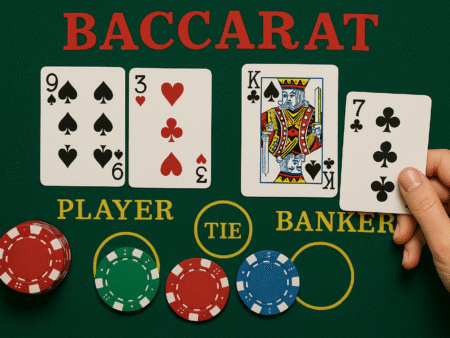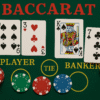Poker is one of the most beloved card games worldwide, blending strategy, psychology, and a touch of luck. Whether you’re playing at a casino, in a home game, or online, mastering poker requires more than just knowing the hand rankings. This comprehensive guide offers the best poker tips tailored to three skill levels: beginner, intermediate, and expert. Each section provides practical, easy-to-understand advice that can improve your gameplay, sharpen your strategy, and potentially increase your winnings.

Section 1: Tips for Poker Beginners
If you’re just starting your poker journey, it’s crucial to build a strong foundation. Poker may seem overwhelming at first, but with the right approach, you can avoid common mistakes and enjoy steady progress. These poker tips for beginners will help you develop solid habits from the start.
Beginner Tips:
- Learn the Hand Rankings by Heart:
Understanding which hands beat others is essential. Don’t sit at a table until you can instantly recognize a straight, flush, full house, and other key combinations. - Play Tight, Not Loose:
New players often play too many hands. Stick to strong starting hands and fold weaker ones. This reduces risk and keeps you in control. - Pay Attention to Table Position:
Your position relative to the dealer influences how you should play. Being “late” (closer to the dealer button) gives you more information before you act, which is a huge advantage. - Avoid Bluffing Too Often:
Bluffing is part of poker, but beginners often overdo it. Focus more on solid play and less on tricking opponents until you gain experience. - Watch and Learn from Others:
Whether in-person or online, observe how experienced players act. Take note of when they bet, fold, or raise and try to understand why. - Use Free Poker Games to Practice:
Online platforms offer free tables or tournaments where you can practice without financial risk—perfect for applying early online poker tips. - Control Your Bankroll:
Never bet more than you can afford to lose. Set a budget before each session and stick to it. - Start with Low-Stakes Games:
Lower stakes are less stressful and usually filled with other beginners, giving you a friendlier learning environment. - Avoid Distractions:
Playing poker requires focus. Turn off notifications, stay off your phone, and give the game your full attention.
Section 2: Tips for Intermediate Poker Players
Now that you know the basics, it’s time to take your game to the next level. Intermediate poker players must start thinking beyond their own cards and consider the psychology and patterns of their opponents. These poker tips and tricks are designed to help you refine your strategies and gain a competitive edge.
Intermediate Tips:
- Read Your Opponents:
Pay attention to betting patterns, body language, and timing. These “tells” can reveal the strength or weakness of their hands. - Master Pot Odds and Implied Odds:
Understanding whether a call is mathematically justified is crucial. Learn how to calculate pot odds to make better decisions on the fly. - Use Continuation Bets Strategically:
If you raised pre-flop, a continuation bet (c-bet) on the flop can pressure your opponents into folding. Use this move wisely, especially when you’ve missed the flop. - Don’t Be Predictable:
Mix up your play style. Occasionally bluff, check a strong hand, or raise unexpectedly. This keeps opponents guessing and prevents them from reading you easily. - Focus on Table Image:
Your reputation at the table affects how others play against you. Use this to your advantage—if they see you as tight, you can bluff more effectively. - Track Your Sessions and Learn from Mistakes:
Maintain a poker journal or use tracking software. Reviewing past hands helps you identify weaknesses and improve decision-making. - Study One Variant Deeply:
Whether it’s Texas Hold’em, Omaha, or another variant, becoming an expert in one form before moving on to others is a smarter approach. - Avoid Going on Tilt:
Losing a big hand can be frustrating, but emotional play leads to bad decisions. Take breaks when needed and maintain a calm mindset. - Use Semi-Bluffs Wisely:
A semi-bluff is when you bet with a drawing hand that could improve. It’s a powerful move when done at the right time against the right opponents. - Play Fewer Tables Online:
Multitabling can lead to missed details. Focus on fewer tables to sharpen reads and make better choices.
Section 3: Tips for Expert Poker Players
For seasoned players, poker is as much a mind game as it is a card game. Winning consistently at higher levels demands psychological mastery, strategic deception, and data-driven decisions. These advanced poker tips are tailored for players who have a deep understanding of the game and are ready to refine their edge.
Expert Tips:
- Balance Your Range:
Avoid being too predictable by mixing value hands and bluffs. A balanced range makes it harder for opponents to exploit your strategy. - Utilize GTO (Game Theory Optimal) Strategy:
GTO focuses on making unexploitable decisions regardless of opponent behavior. It’s a great framework when facing tough opponents. - Shift to Exploitative Play When Appropriate:
If you notice an opponent has leaks—like folding too often or calling too much—deviate from GTO and exploit their habits for maximum profit. - Use Poker Solvers to Analyze Hands:
Tools like PioSOLVER and GTO+ can simulate optimal decisions and help you evaluate hands post-session. - Apply RDR2 Poker Tips to Read Character Behavior:
If you enjoy playing poker in Red Dead Redemption 2, pay attention to in-game behavioral cues. While fictional, the game teaches patience, hand selection, and reading opponents—skills useful in real-world play too. - Adapt to Table Dynamics Instantly:
Table composition changes constantly. Adjust your play style to match tight or loose tables for better results. - Specialize in a Variant like Omaha:
Omaha offers more action and bigger pots. Learning how to manage multiple strong hands and mastering drawing odds are essential Omaha poker tips for expert players. - Bluff in Multi-Street Scenarios:
Advanced players understand when to continue bluffs on the turn and river. Bluffing across multiple streets requires board awareness and understanding of your opponent’s range. - Play in Position as Often as Possible:
Even experienced players make more profitable decisions when acting last. Make positional advantage a priority in every hand. - Refine Your Texas Hold’em Strategy with Data:
For those focused on Hold’em, track your win rates by position, hand strength, and betting patterns. Data-backed insights lead to long-term profitability and sharper texas holdem poker tips.
Final Thoughts
Poker is a game that rewards continuous learning and sharp decision-making. From basic hand knowledge to advanced concepts like GTO strategy and multi-street bluffs, the game evolves with your skills. Applying the best poker tips at each stage of your journey not only increases your winning potential but also deepens your appreciation for the game.
Whether you’re looking for video poker tips, studying opponent behavior in live games, or refining your online play, remember: poker is a marathon, not a sprint. With patience, study, and smart decision-making, you’ll find yourself climbing the skill ladder—and enjoying every step along the way.






